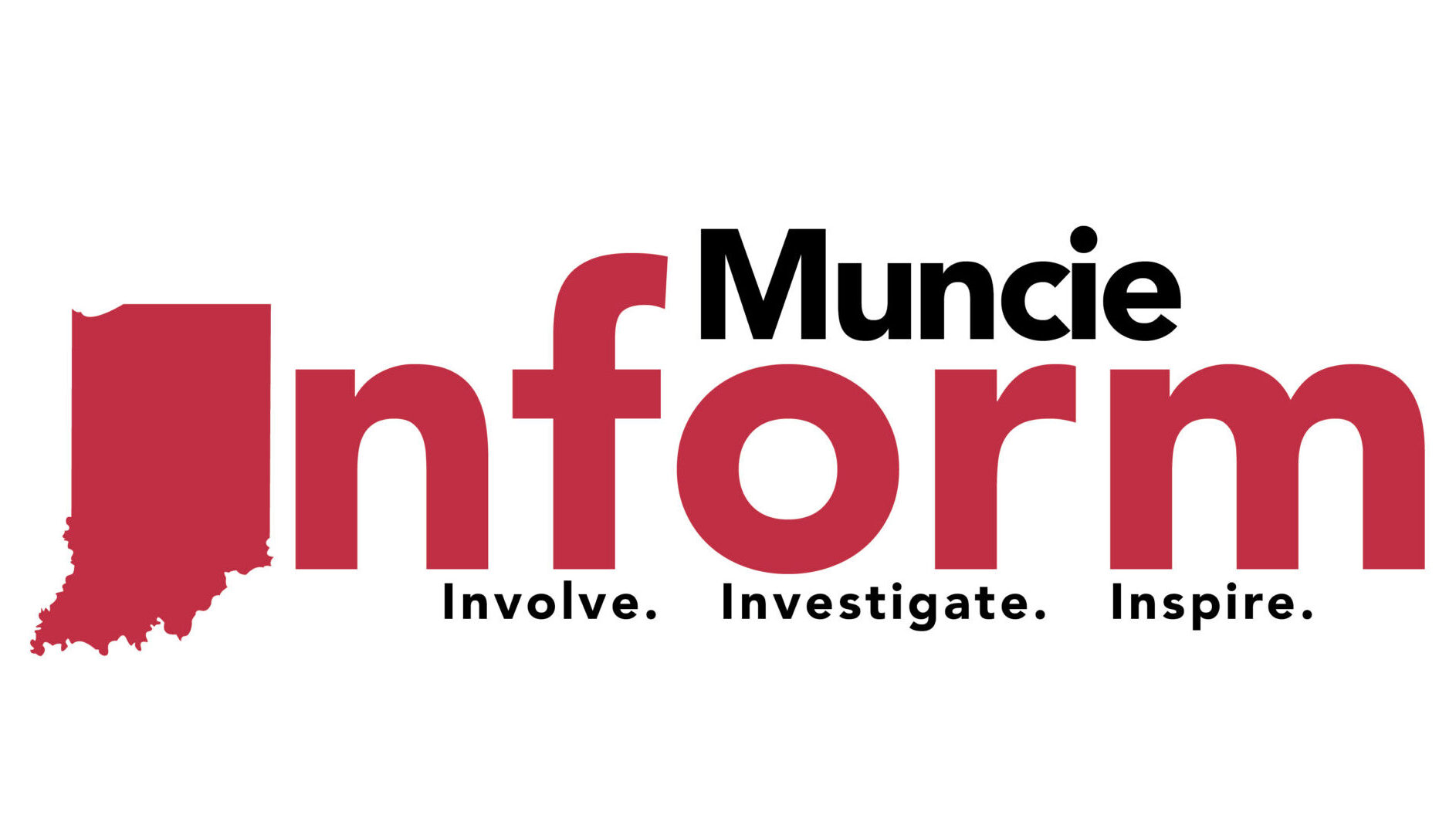These columns feature the voices of people across the Muncie community.
True inclusivity means walking the walk
By Laura Janney
This is what we need.
By WaTasha Barnes Griffin
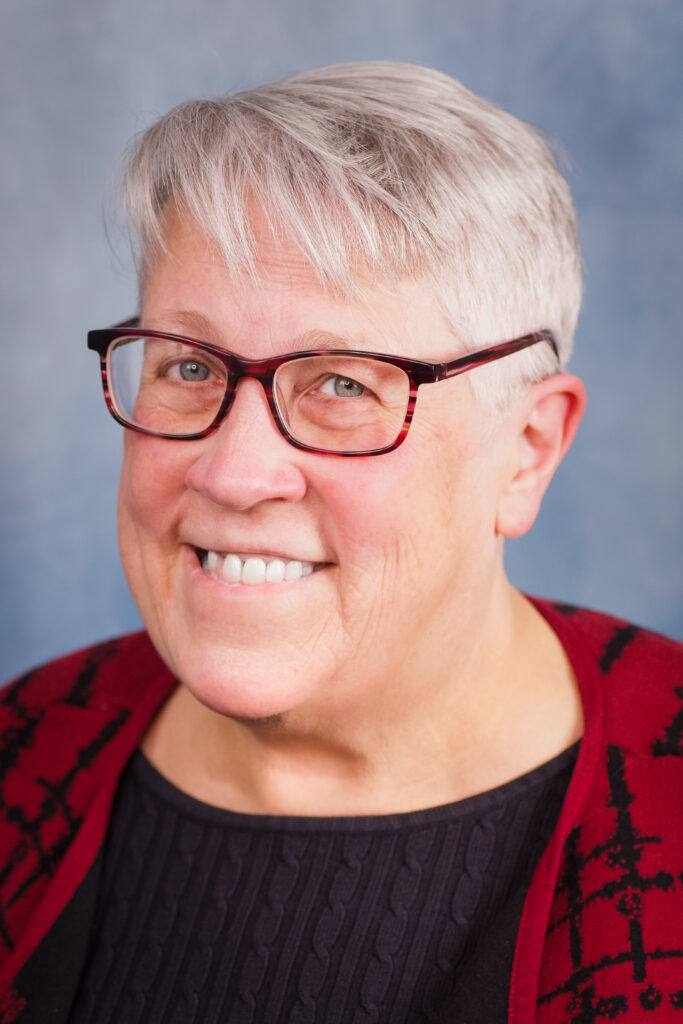
I think the motivation behind being more inclusive is good. I think the way inclusiveness is carried out many times is bad. It can be tokenism at its finest.
When the powered persons clarify they own the table and are allowing you to be included is it just another show of power? Inclusion is a first step.
If the included group is left powerless and unheard are they really included or are they window-dressing so that HR can check a box about diversity? Is it really an inclusive workplace if there is a gender-based dress code? Is it an inclusive workplace if there are taboos against natural hairstyles in the workplace? Is it an inclusive workplace as long as you don’t have a picture of your same sex partner on your desk where a client might see? Is it inclusive if some employees have Bible quotes as their email sign-off but co-workers are asked to change their quotes from the Quran or the Bhagavad-gita?
Whether explicit or implicit, if the workplace is willing to hire, but not hear or promote persons who fall into one minority status or another, then it is not an inclusive workplace. Many companies seem to only drop the ladder of advancement to straight white men who have a certain look and will fit in at the golf course where the executives like to meet. If upper management cannot get over this hurdle because they are trying to (whether consciously or not) maintain their own comfort zone then maybe they are not cut out for upper management.
There must be trust and building trust doesn’t happen overnight. Building trust doesn’t happen with some grand declaration of inclusivity. Building trust only occurs through a series of incidences in which fairness is exemplified. When a workplace offers inclusivity training seminars for employees but doesn’t require any real change from upper management and the decision-makers who tend to control where opportunities for advancement appear, trust is broken. Clear and deliberate decisions that lead to actions that are truly inclusive must come not only from HR, but also from the top down.
To really be inclusive workplaces must go beyond just tolerating diversity. To be inclusive we must celebrate differences and be engaged and excited to learn about different cultures and lifestyles. To be inclusive we must recognize that understanding gained through engagement will help make our businesses, non-profits, and schools better serve all of society. Only by engaging and learning from others do we all win.
Laura Janney is founder of Muncie OUTreach, an LGBTQ+ youth group, and serves on the Inform Muncie Audience Advisory Board.
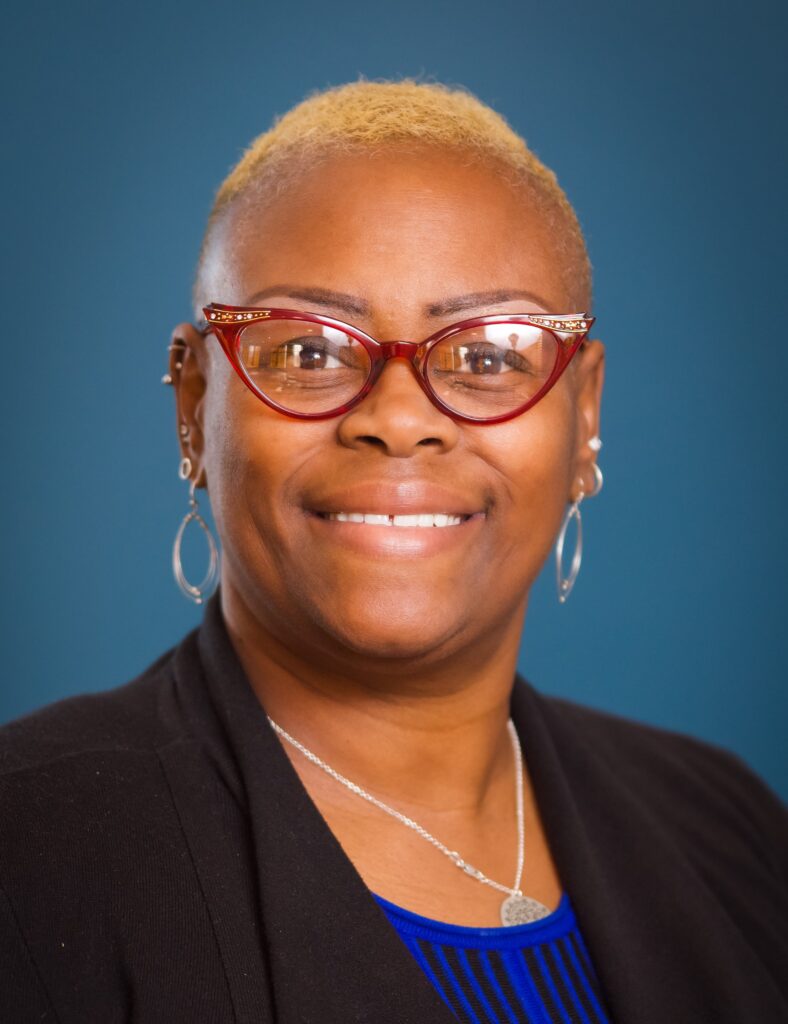
Showing up for the diversity, equity, inclusion, acting in alliance, and racial justice conversations is not enough. One must come with full recognition of the privilege that white people have. Privilege that allows some to ignore or minimize issues of race and racism. If we want spaces and places that support a culture of diversity, equity, and inclusion, it takes one making a conscious decision to notice, call out, and challenge institutional and cultural racism.
That is the help Black and Brown people need. Conversing with us in spaces that support understanding and learning. Listening to Black voices and following instead of attempting to steer. Doing the personal reflection work that is required to confront one’s unconscious bias, microaggressions and the benefits of privilege that come just from being white.
We need allies committed to standing with us and working to dismantle systemic racism when the newsrooms close and the cameras are turned off. When anti-racism is not trending, 24 hours a day 365 days of the year. We need support non-stop. This is not just an interruption of a program that will resume and go back to normal. This is a fight we have had our entire lives. There is no other program.
Do you care enough to speak up and support black and brown people and marginalized communities even when racism is tucked safely behind the phone/computer screen and when it is right there in front of your face?
True commitment means calling out relatives, colleagues, and friends. It also means asking your Black and Brown friends about their experiences of racism and sincerely listening.
We appreciate the fact that your organization has a Diversity, Equity, and Inclusion (DEI) committee. Your effort to appear committed, the checkmark on the DEI box may help you sleep better at night; but not us.
Here is what one can do. Make the conscious decision to do the difficult work of turning conversations and good intention into action. That is the help black and brown people need.
In closing, I want to share a link to a poignant article that speaks truthfully to how Black and Brown folk are feeling. It’s titled “No, I Am Not OK. Thanks for Asking.” by Dr. Neal A. Lester, Ph.D., a Foundation Professor of English and Founding Director of Project Humanities at Arizona State University.
Be well.
WaTasha Barnes Griffin is CEO of YWCA Central Indiana, A member of the Muncie Community Schools Board of Trustees and co-chair of The Martin Luther King Dream Team and Muncie Chapter of Indiana Black Expo. She is a member of Inform Muncie Audience Advisory Board.
A call for all races to stand up for BLM
By Andre Mitchell
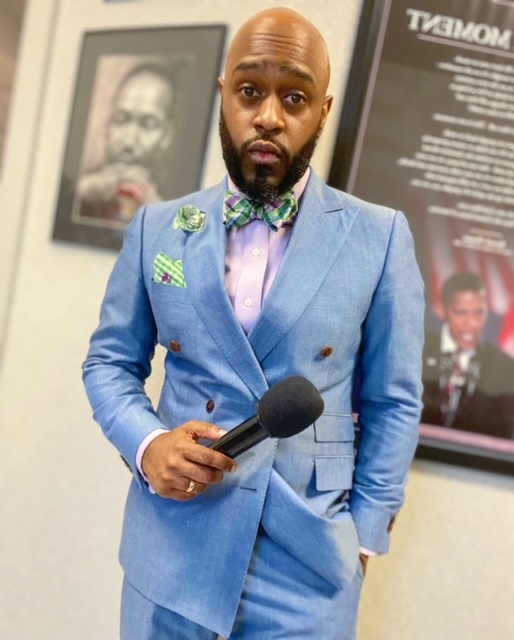
Recently, a white lady in Atlanta discovered an anonymous manifesto on her car when she awoke and started her day. The letter was addressed to the Black family who “lives here.” The anonymous writer assumed they were hiding a Black family because there was a Black Lives Matter sign in her yard. But the woman was white.
The phrase Black Lives Matter has become a loaded phrase that triggers people. All that is being said is that Black Lives Matter too or also. When it’s Breast Cancer Awareness month no one feels it necessary to ask “but what about prostate cancer.” If I know someone diagnosed with breast cancer, you’d understand why that would be my focus at that moment. Also, if my home was on fire and I called the fire department, no one would feel the need to say “but all houses matter.” The fire department is allowed to address the house with the most immediate need. I’m sure you see my point. The vitriol surrounding the BLM phrase is misguided at best, racist at worse.
Back to the letter. In bold font the letter starts, “If you really believe Black Lives Matter, tell them to stop murdering each other.” I’d like to explain the error and inherent racism in that statement by adding a similar statement. “If you really believe All Lives Matter, tell Whites to stop murdering each other, or tell Asians to stop murdering each other.” If All Lives was the true focus these people would be triggered by every instance of genocide, homicide, suicide, or infanticide across the entire globe. I suggest the real trigger is born out of the American racism that we’ve all become accustomed to, but few want to acknowledge.
Crime statistics show most homicide victims in the United States are the same race as the perpetrator. Yet you only hear the phrase “Black on Black” crime. Why is that? It’s a narrative designed to make it appear as if Blacks are other than. Or somehow more violent than humans as a whole. As Greg Barnes states “Murder is a proximity crime, and most races of people tend to live near others of that race. You’re also more than likely to be murdered by someone you know…” Basically, we are ignoring proximity statistics to keep a narrative going that logic doesn’t back up.
When I say logic doesn’t back it up, this is what I mean. The backlash against the BLM phrase is saying Black lives don’t matter to them, so why are you trying to preach it to us. If a person hates another person in the same people group I lose all moral high ground to call out hate anywhere else; because after all, they sometimes hate each other. Let me be even more clear. As a male I can’t call out domestic violence, because sometimes women fight other women and hurt each other. That logic is erroneous and only seems to be applied in the context of race so people can feel comfortable deflecting their responsibilities as it relates to other humans. We often forget that the biggest race is the human race. What is happening to one of us, will eventually have an effect on all of us.
Here’s the truth. Humans harm humans not based on ethnicity but based on the depravity of humanity and the pervasiveness of wicked human systems. When you add poverty, systems of oppression, and media narratives, it’s easy to make Black look like something other than human. Every civil/tribal/family war in history will tell you that humans throughout history have harmed each other to their own detriment, long before the social construct known as “race” was ever invented. Nevertheless, good ole American-bread racism says Blacks must be feared above all, just look at what they do to each other. All that is, is classic deflection. How angrily a person responds to the phrase Black Lives Matter tells me a lot about them and their ideology. In the words of TikTok “Tell me you’re racist without telling me you’re racist.”
Pastor Andre Mitchell is Senior Pastor of Deliverance Temple. Learn more at www.AndreMitchell.com
Magic happens when we get to know one another
By Dorica Young-Watson
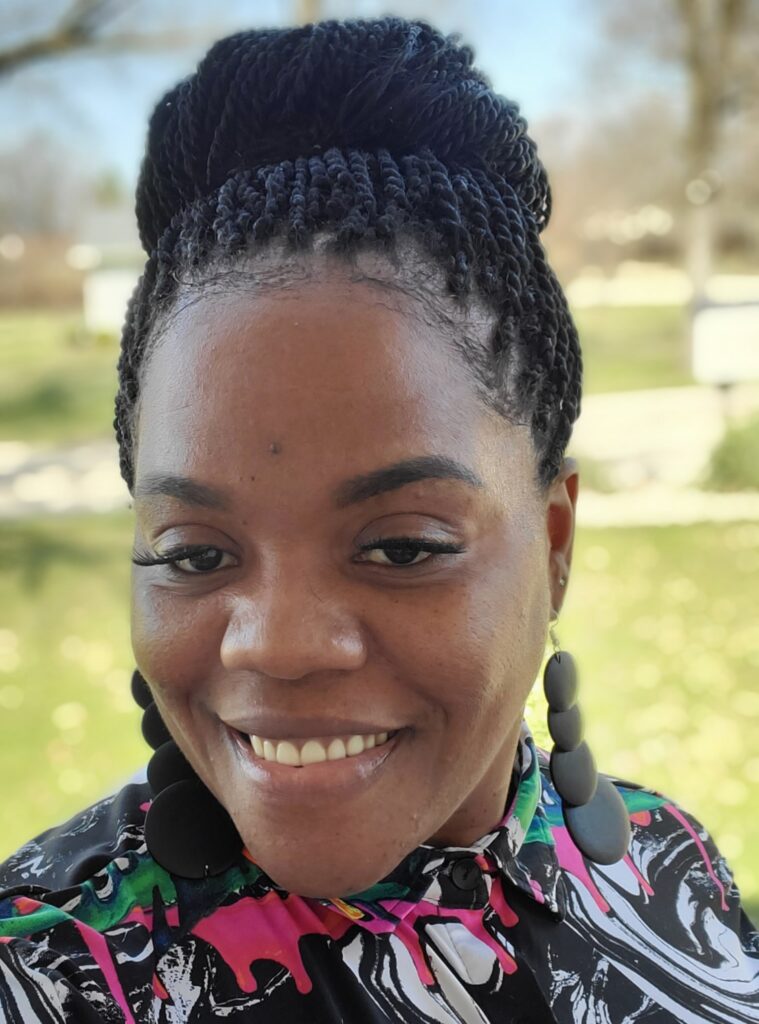
Growing up, I knew that February was Black History Month and what I later called The Big Five of Black History – Harriet Tubman, Rosa Parks, Dr. Martin King Jr., Fredrick Douglass and George Washington Carver.
I also knew about Black Music Month celebrated in June. I felt like February and June granted me limited “permission” to be proud of the skin I was in.
It wasn’t until I was an adult with children of my own that I would learn about trailblazers like Carter G. Woodson, Ida B. Wells, Fannie Lou Hamer and Shirley Chisholm, about Sharecropping, Jim Crow, the Great Migration and Juneteenth.
Today, it’s hard to believe that for many years of my life, I felt restricted, to only acknowledge, honor and celebrate Black successes, hardships, accomplishments, trauma and progress during two months of the year and even then, only with a limited, unfocused lens.
I often wonder, what if Black history, which is American history would have been taught in public schools, would my family have fully known our history and felt empowered to share it with me? Would I have learned about the many leaders, inventors and heroes that came before me? Would this information have positively adjusted the trajectory of my life and encouraged me to believe in myself? Would I have been empowered to embolden my own children by sharing the experiences and accomplishments of their aancestors? Would little children of color finally be judged by the content of their character and not the color of their skin?
These questions remain a mystery to me but moving forward, I commit to engaging, educating and empowering family, friends and the greater community about the African American experience. Knowing that knowledge is key but it takes effort and commitment to positive change to open the door.
My commitment to move beyond knowledge-only starts with learning more about teaching others and celebrating Juneteenth, “Freedom Day,” the oldest nationally celebrated commemoration of the ending of slavery in the United States, dating back to 1865 and known as America’s true Independence Day as all citizens were now free.
It was on June 19th 1865, that the Union soldiers, led by Gen. Gordon Granger, landed at Galveston, Texas with news that the war ended and that the enslaved were now free.
This was 2 ½ years after President Abraham Lincoln issued the Emancipation Proclamation and nearly 89 years after the July 4, 1776 official separation of the colonies from Great Britain, amid the Revolutionary War.
Juneteenth celebrates African American freedom and achievement, while encouraging continuous self-development, community and respect for all cultures. Juneteenth is a celebration for everyone, a time of community gathering, unity, awareness, understanding and healing.
My favorite quote is by Stanford University Professor Dr. Robert Sapolsky, who said: “Human Relationship is the sledgehammer that obliterates every societal difference.” I truly believe when we intentionally create a relationship with someone who is different from us “magic happens” and I am excited to be a part of the magic happening in Muncie.
Reading this article, increasing your knowledge is taking the first step, I hope you will consider adding a little more magic by joining me for the 2021 Juneteenth Muncie celebration on June 19, 2021 from 3 to9 p.m. at Heekin Park.
Dorica Watson is a community advocate and member of the Inform Audience Advisory Board.
